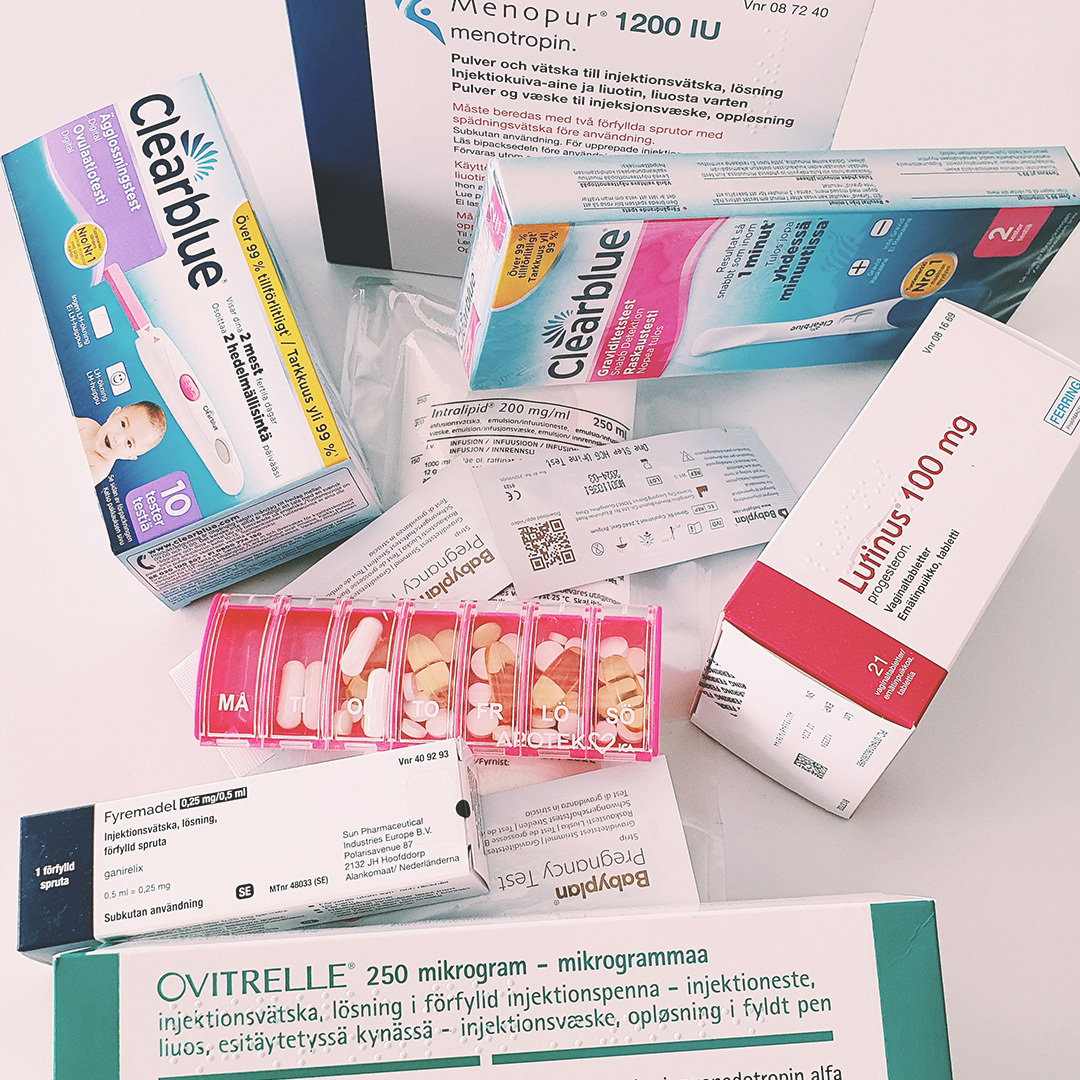IVF Lingo
.jpg?alt=media)
We know that when you’re about to start your journey with IVF, whether it’s to become pregnant or freeze your eggs, it can be a little confusing and overwhelming. There are many key terms and abbreviations you’re not familiar with that you’ll likely hear or read along the way. It can feel like learning a whole new language, but knowing these terms will help you feel more confident and in control. Here’s a guide to some of the common IVF lingo:
TTC
(Trying to conceive): This abbreviation stands for trying to get pregnant.
IVF
(In Vitro Fertilization): This is a procedure where eggs are fertilized by sperm outside the body, in a lab. It’s one of the most common assisted reproductive technologies (ART) used today.
ART
(Assisted Reproductive Technology): This refers to fertility treatments and procedures that can help with infertility. ART techniques involve the manipulation of eggs, sperm, or embryos to increase the likelihood of a successful pregnancy.
IUI
(Intrauterine insemination): This is a type of fertility treatment that involves placing sperm inside a woman's uterus close to the fallopian tubes using a small catheter in order to increase the chances of conceiving.
FSH
(Follicle Stimulating Hormone): You’ll probably hear about this hormone a lot. FSH helps stimulate your ovaries to produce eggs. It’s a key player in your treatment.
LH
(Luteinizing Hormone): A hormone that triggers ovulation and the release of the mature egg from the ovary.
AMH
(Anti-mullerian hormone): You’ll most often hear AMH mentioned in reference to a woman’s ovarian reserve. It’s a sex hormone produced by the ovaries in women that regulates the number of follicles that develop and thus affects fertility.
HCG
(Human Chorionic Gonadotropin): Often called the “pregnancy hormone,” HCG is also used in your treatment to trigger ovulation, so your eggs are ready for retrieval.
AFC
(Antral Follicle Count): A way of determining your ovarian reserve of eggs via a Transvaginal Ultrasound where follicles are counted and measured.
ER
(Egg Retrieval): This is a big milestone in your journey. This procedure is when your doctor will collect the mature eggs from your ovaries. The eggs are removed from the follicles via the vagina through a needle which is connected to a suction device.
ET
(Embryo Transfer): If you’re doing IVF, this is the step where a fertilized embryo is placed back into your uterus. It’s a crucial moment!
FET
(Frozen Embryo Transfer): This is where your frozen embryos would be thawed and transferred to your uterus.
ICSI
(Intracytoplasmic Sperm Injection): This is a technique used during in vitro fertilization (IVF) where a single sperm is injected directly into the egg to help with fertilization. This can be especially helpful if there are male infertility factors.
PGT
(Preimplantation Genetic Testing): This is a screening test used to identify genetic abnormalities in embryos created with in vitro fertilization (IVF) before transferred to the uterus.
2WW
(Two-Week Wait): After the embryo transfer, you’ll enter this period, which is exactly what it sounds like — the wait to find out if the treatment was successful. It can feel like the longest two weeks ever, but you’ve got this!
OHSS
(Ovarian Hyperstimulation Syndrome): This is a complication of IVF treatment which causes your ovaries to swell and leak fluid into your abdomen due to an exaggerated response to excess hormones. Your doctor will monitor you closely to avoid this.
Blasts:
(Blastocyst): This term refers to an embryo that has developed for about five days after fertilization. Blastocysts are often used for transfer because they have a higher chance of implanting.
Embryo Grading
You might hear about this when it’s time to decide which embryos to transfer or freeze. It’s a system doctors use to assess the quality of the embryos.
TESA
(Testicular sperm aspiration): A procedure performed by inserting a needle in the testicles and aspirating fluid and tissue with negative pressure.
TESE
(Testicular Sperm Extraction): This is a surgical biopsy of testicular tissue to locate healthy sperm.
BFP/BFN
(Big Fat Positive/Negative): Slang for a positive or negative pregnancy test result.
Luteal Phase:
This is the phase after ovulation and before your period begins. It’s important because it’s when implantation happens if you’re pregnant.
AF
(Aunt Flo): Slang for menstrual period.
OPK
(Ovulation Predictor Kit): An OPK is a home test that checks your urine to predict when you're most likely to be fertile.
Miscarriage
A miscarriage is the loss of a pregnancy during the first 20 weeks.
MA
(Missed Abortion): When a pregnancy stops without the body realizing it, this is called a missed abortion. It’s a specific type of miscarriage, and refers to embryonic or fetal death with failure of the retained intrauterine products of conception to be discharged naturally.
EP
(Ectopic Pregnancy): When a fertilised egg implants itself outside of the womb, usually in one of the fallopian tubes.
ED
(Egg donation): is the process by which a woman donates eggs to enable another woman to conceive as part of an assisted reproduction treatment.
Social Freezing
This is the precautionary freezing of unfertilized eggs without a medical reason so that fertility can be preserved.
Understanding this lingo can help you navigate conversations in our community or with your fertility specialist as well as better understand the assisted reproductive techniques and processes. Remember, every part of this process is a step closer to your goal, whether that’s freezing eggs for future use or growing your family now. It’s completely normal to have a lot of questions or even feel overwhelmed. Just take it one step at a time, and don’t hesitate to lean on your support system.
You got this! 🧡
Take me to the free clinic search tool!

Article by
Andrea Olsson
Co-founder of Bumpy
Other Articles

Samantha's Story
I knew from the start that it was hard to conceive a child of our own with my partner. As a child he... Read article

Male factor infertility
The definition of male factor infertility is when the cause of infertility within a couple is becaus... Read article

Endometriosis
The European Society of Human Reproduction and Embryology (ESHRE) has recently released an updated g... Read article
.jpg?alt=media&token=912e3772-6724-4c20-a29e-201478dda308)
Intrauterine Insemination
Intrauterine insemination (IUI), also called artificial insemination (AI), is a type of fertility tr... Read article

Jessica Olers's Story
Sometimes it doesn't turn out as planned. Ever since I was little, I have dreamed of a big family wi... Read article

Jessica’s Story
I have been pregnant three times. Or actually while writing this story, I am pregnant. But I don't f... Read article

Klara’s Story
Our infertility journey started two years ago. The process has not at all been what we expected and ... Read article
.jpg?alt=media&token=fc32a2e6-a127-4170-b5fb-b9338770ed1a)
The effects of Vitamin D on fertility
Vitamin D is a vitamin synthesized in the skin through sun exposure (UVB radiation). Moreover, vitam... Read article

Veronica’s Story
To make babies. Nowadays that phrase has a completely different meaning.In february 2019 we decided ... Read article

Tova’s Story
This is #mybumpystory - an emotional rollercoaster with repeated miscarriages and hopefully soon a b... Read article